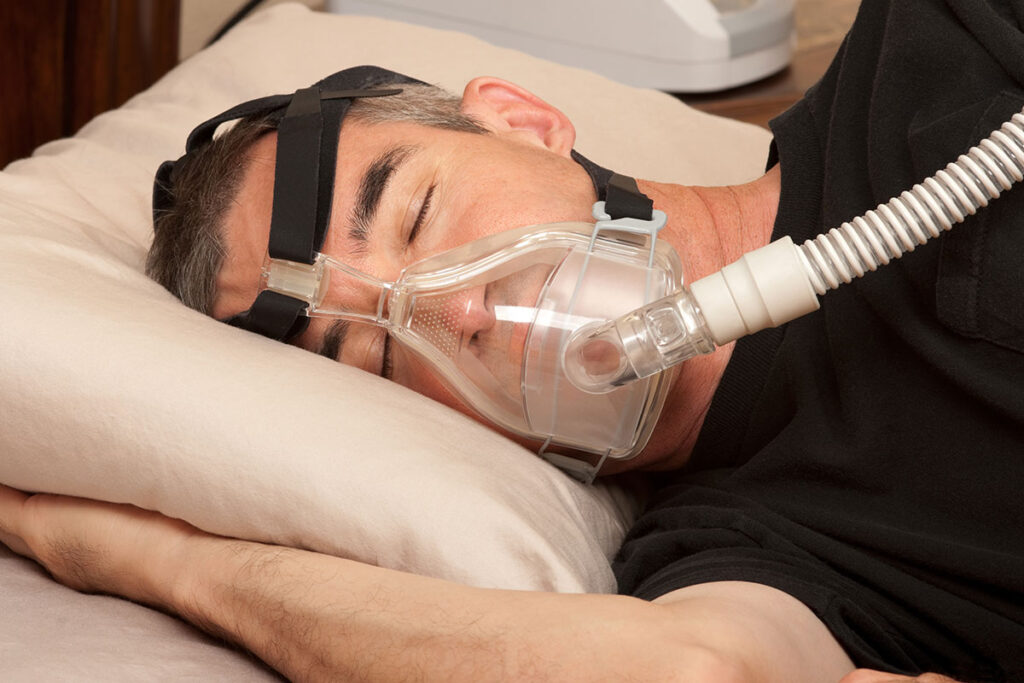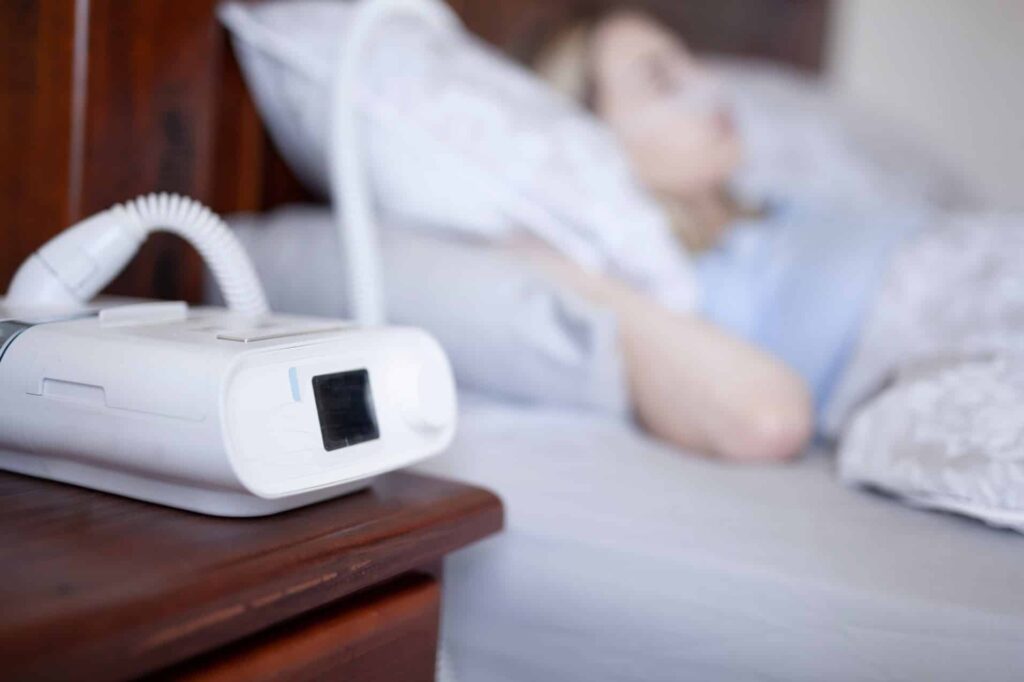Sleep apnea is a serious sleep disorder that affects a significant number of people in Adelaide and around the world. It is characterized by pauses in breathing or shallow breaths during sleep, leading to disrupted sleep patterns and a variety of health complications. If you suspect that you or a loved one may have sleep apnea, it is crucial to understand the importance of getting tested and diagnosed. In this article, we will explore the different types of sleep apnea tests available in Adelaide, what to expect during the testing process, and how to interpret the results.
Understanding Sleep Apnea Test
Sleep apnea test Adelaide like polysomnography assess breathing patterns and oxygen levels during sleep. These tests can be conducted in sleep clinics or at home with portable monitors. Patients need a referral from a healthcare provider. Results help in diagnosing and determining treatment plans for sleep apnea.
What is Sleep Apnea?
Sleep apnea is a condition where the airway becomes partially or completely blocked during sleep, causing breathing to stop for brief periods. There are three main types of sleep apnea: obstructive sleep apnea (OSA), central sleep apnea (CSA), and complex sleep apnea syndrome (CSAS).
Obstructive sleep apnea (OSA) is the most common type and occurs when the throat muscles relax, leading to a blockage of the airway. Central sleep apnea (CSA) is less common and involves the brain failing to send signals to the muscles that control breathing. Complex sleep apnea syndrome (CSAS) is a combination of both obstructive and central sleep apnea.

Symptoms and Risks of Sleep Apnea
Sleep apnea can result in a range of symptoms, including loud snoring, excessive daytime sleepiness, morning headaches, difficulty concentrating, and irritability. If left untreated, sleep apnea can have serious health risks, such as heart disease, high blood pressure, stroke, and diabetes.
Individuals with untreated sleep apnea may also experience mood disturbances, memory problems, weight gain, and a higher risk of accidents due to impaired alertness. The repeated pauses in breathing during sleep can lead to oxygen deprivation in the body, putting a strain on the heart and other organs over time. Seeking treatment for sleep apnea is crucial to improve quality of life and reduce the risk of associated health complications.
The Importance of Sleep Apnea Tests
Early Detection and Diagnosis
Getting tested for sleep apnea is crucial for early detection and diagnosis. Identifying sleep apnea at an early stage allows for timely treatment and management, reducing the risk of further complications and improving overall quality of life.
One of the key benefits of early detection through sleep apnea tests is the ability to customize treatment plans according to individual needs. By pinpointing the severity and specific characteristics of the condition, healthcare providers can tailor interventions that are most effective for each patient. This personalized approach not only enhances treatment outcomes but also promotes better adherence to therapy, leading to long-term success in managing sleep apnea.
Preventing Serious Health Complications
By undergoing sleep apnea tests, individuals can take proactive steps to prevent serious health complications associated with untreated sleep apnea. Early intervention can help avoid the development or worsening of cardiovascular problems, respiratory issues, and other related conditions.
Moreover, timely diagnosis of sleep apnea can contribute to the prevention of secondary health issues that may arise due to chronic sleep deprivation. Research has shown that untreated sleep apnea not only impacts physical health but also significantly affects cognitive function and emotional well-being. By addressing sleep apnea early on, individuals can safeguard their mental and emotional health, improving overall quality of life beyond just physical health. Read more about cognitive function at https://lpi.oregonstate.edu/mic/health-disease/cognitive-function
Types of Sleep Apnea Tests
Home Sleep Tests
A home sleep test is a convenient option for individuals who suspect they have sleep apnea. It involves the use of portable monitoring devices that record various parameters, such as breathing patterns, heart rate, and oxygen levels, while you sleep in the comfort of your own bed.
Home sleep tests are particularly beneficial for those who prefer the familiar environment of their own home over a clinical setting. The devices used in these tests are user-friendly and designed to be easy to set up, allowing for a more relaxed and natural sleep experience. The data collected during a home sleep test can provide valuable insights into your sleep patterns and help healthcare providers diagnose sleep apnea accurately.
In-Lab Sleep Tests
In-lab sleep tests, also known as polysomnography, are conducted in a specialized sleep clinic or hospital setting. During the test, you will stay overnight while sensors are attached to your body to measure brain activity, eye movements, muscle tone, heart rate, and breathing patterns.
Polysomnography is considered the gold standard for diagnosing sleep disorders like sleep apnea due to the comprehensive nature of the data collected. In addition to monitoring vital signs and sleep patterns, in-lab tests also allow sleep technologists to observe other factors that may affect sleep quality, such as body position and snoring intensity. The controlled environment of a sleep clinic ensures that the test results are accurate and reliable, providing healthcare providers with detailed information to formulate an effective treatment plan for sleep apnea patients.
What to Expect During a Sleep Apnea Test
Are you curious about what happens during a sleep apnea test? Let’s dive deeper into the details to give you a better understanding of this important diagnostic procedure.
Preparation for the Test
Prior to undergoing a sleep apnea test, your healthcare provider will provide specific instructions on how to prepare for the test. This may include avoiding caffeine and certain medications, maintaining your regular sleep schedule, and arriving at the testing facility in comfortable clothing.
It’s essential to follow these instructions carefully to ensure the accuracy of the test results. By adhering to the preparation guidelines, you can help healthcare providers gather the information needed to make an accurate diagnosis and develop an appropriate treatment plan tailored to your individual needs.
The Testing Process
Once you are ready to begin the sleep apnea test, the necessary equipment will be set up and connected to monitor your sleep patterns. This equipment typically includes sensors to track your breathing, heart rate, and oxygen levels while you sleep.
Throughout the testing process, it’s important to try to relax and follow your usual routine as much as possible. This will help ensure that the results reflect your typical sleep patterns and provide valuable insights for your healthcare provider.
A trained technician will be present to assist you during the test and address any concerns or questions you may have. Their expertise and guidance will help ensure that the test is conducted smoothly and accurately, leading to reliable results for your healthcare team to analyze. Click here to learn more about accurately.
Interpreting Sleep Apnea Test Results
Understanding Your Results
Once the sleep apnea test is completed, the data collected will be analyzed by sleep specialists who will interpret the results. The results will provide valuable information regarding the severity and type of sleep apnea, which will help guide the appropriate treatment plan.
Interpreting sleep apnea test results involves analyzing various factors such as the number of apnea and hypopnea events per hour, oxygen levels during sleep, and the overall quality of sleep. These results are crucial in determining the best course of action to manage the condition effectively.

Next Steps After Diagnosis
If the sleep apnea test confirms a diagnosis of sleep apnea, your healthcare provider will discuss treatment options with you. These may include lifestyle changes, continuous positive airway pressure (CPAP) therapy, oral appliances, surgery, or a combination of approaches tailored to your specific needs.
It is important to note that the treatment plan for sleep apnea may evolve over time based on your response to initial interventions and any changes in your condition. Regular follow-ups with your healthcare provider and sleep specialist are essential to ensure that your treatment remains effective and appropriate.
In conclusion, sleep apnea tests play a crucial role in diagnosing and managing sleep apnea. Early detection and treatment can prevent serious health complications and improve overall quality of life. Whether you opt for a home sleep test or an in-lab sleep test, it is important to follow the instructions provided by your healthcare provider and discuss the results with a sleep specialist. Don’t ignore the signs and symptoms of sleep apnea; take the first step towards better sleep and better health by getting tested today.
Other resources: Exploring Sleep Apnea Test Options in Australia
